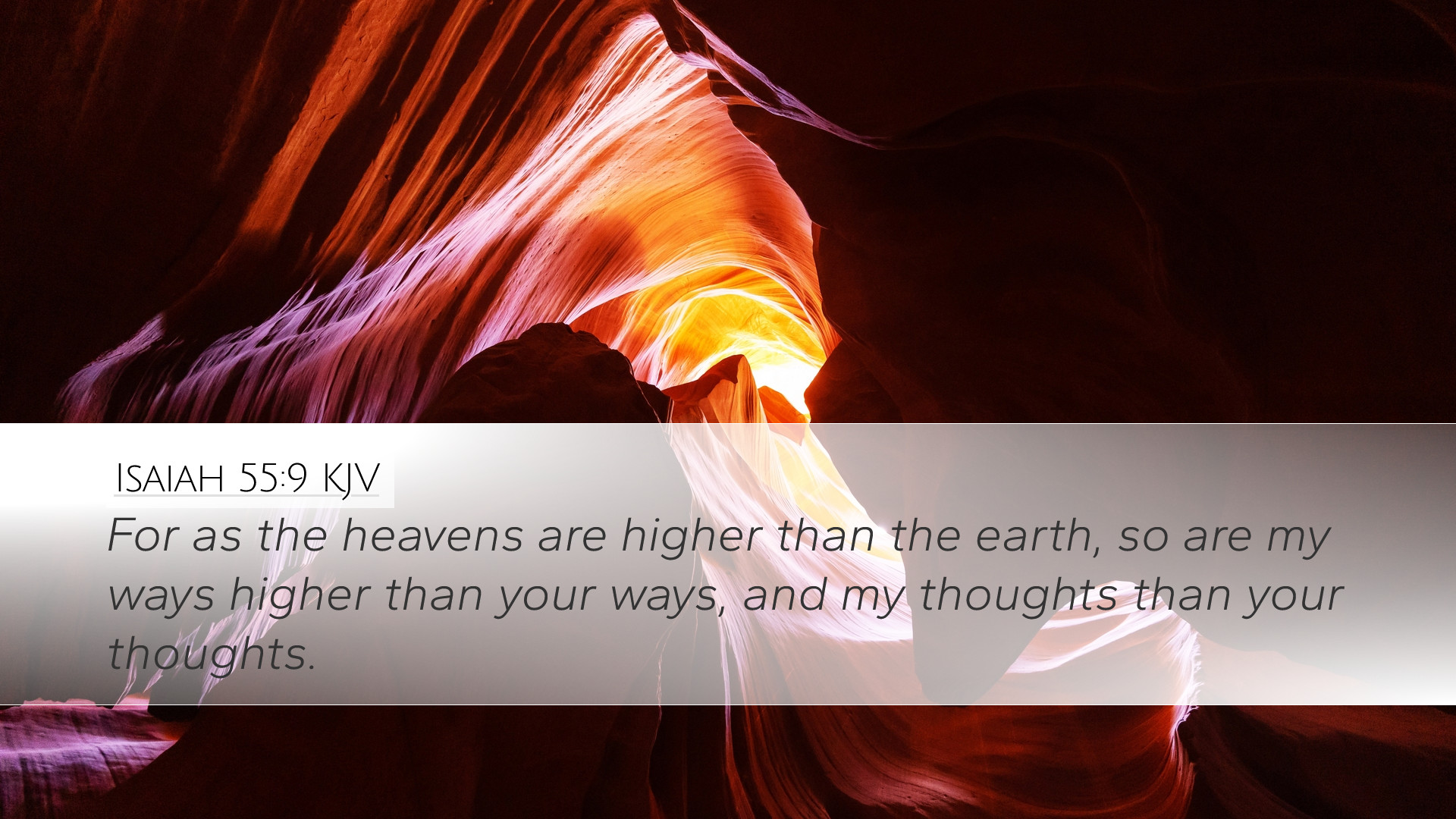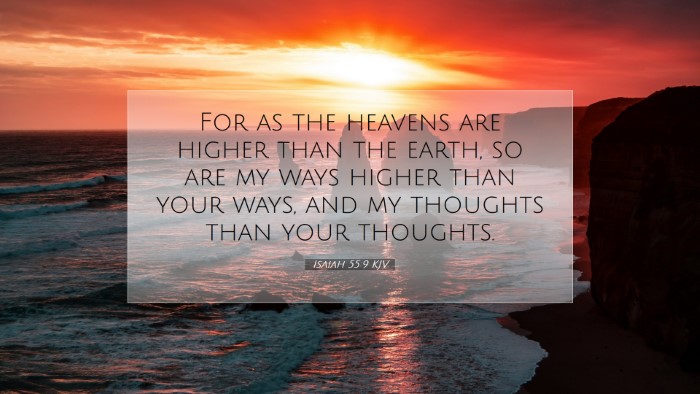Commentary on Isaiah 55:9
Verse: Isaiah 55:9 - "For as the heavens are higher than the earth, so are my ways higher than your ways, and my thoughts than your thoughts."
Introduction
This verse serves as a profound reminder of the transcendence of God’s thoughts and ways compared to human understanding. Such a declaration invites deep reflection on the nature of divine wisdom contrasted with human folly. This commentary synthesizes insights from various public domain sources to illuminate the richness of this verse for pastors, students, theologians, and Bible scholars.
The Majesty of God’s Ways
Heavens and Earth: The imagery of "heavens" and "earth" illustrates an immense chasm between the divine and the human. Matthew Henry notes that "the heavens" can refer to both God’s created order and His sovereign authority over all things. This illustrates God’s supremacy and the limitless scope of His wisdom and plans.
Height of God’s Thoughts
Albert Barnes elaborates on the concept of the "height" of God’s thoughts as a demonstration of their divine origin and perfection. He emphasizes that while humans may fail to grasp the vastness of God's thoughts, the believer can find comfort in the assurance that God's plans are ultimately for good, even when they seem inscrutable. Therefore, the heights signify not only distance but also an elevation of moral and spiritual excellence.
Human Limitations
In stark contrast to divine wisdom, human thoughts and ways are often marred by sin and shortsightedness. Adam Clarke remarks on the natural tendency of humans to operate within the bounds of their limited understanding, which often leads to misjudgment and despair, especially in times of trial.
Understanding Through Revelation
This verse calls for humility in understanding God's purposes. Acknowledging our limitations helps facilitate a posture of faith and trust. Clarke further suggests that it is through divine revelation, particularly in Scripture, that we can begin to perceive aspects of God's ways. While we may never fully comprehend, moments of clarity serve as reminders of God’s faithfulness and providence.
Practical Implications for Believers
Trust in God’s Plan: Recognizing that God’s ways surpass ours invites believers to surrender their own understandings and trust in His plan, especially during difficult circumstances. Henry suggests that this understanding emboldens faith, encouraging believers to pray for alignment with God’s thoughts, rather than imposing their desires.
Embracing Divine Perspective
Moreover, as Barnes points out, this verse encourages believers to seek God’s perspective on situations. Through prayers and scriptures, believers can cultivate a mindset that appreciates the broader context of God’s redemptive narrative, which, while not always transparent, is always purposeful.
Theological Reflection
This passage serves as a theological cornerstone that underscores the doctrine of divine sovereignty. Recognizing that God's understanding far exceeds human comprehension aligns with core Christian convictions about God's omniscience and omnipotence. Clarke affirms that understanding our place within God’s grand design is crucial for theological study and practical Christian living.
Inspiration for Ministry
For pastors and church leaders, this truth can function as a source of encouragement. In moments of confusion or leadership challenges, the assurance that God’s plans are far-reaching can provide comfort and guide decisions. Delivering messages that reflect this perspective can inspire congregations to trust in God's sovereignty and find peace amidst uncertainty.
Conclusion
Isaiah 55:9 profoundly communicates the majesty of God's thoughts compared to ours. This not only serves as a theological truth to acknowledge but is also a practical call to trust, seek, and reflect on the nature of our God. Believers are invited to embrace the mystery of God’s will, knowing that in the grand design, all things work together for good.
As we engage with this passage, may we recognize our limitations, deepen our faith, and align ourselves with the higher ways of our Creator.


